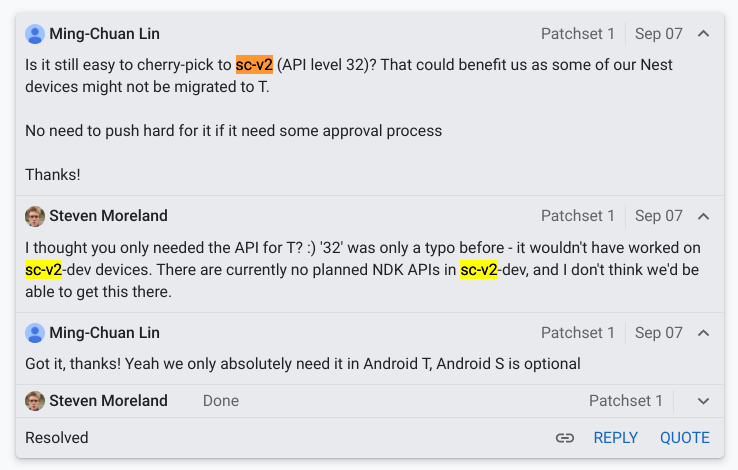
Breaking from the recent yearly release cadence, the next version of Android to release might be a mid-cycle bump — an “Android 12.1,” if you will — rather than Android 13.
By all measures, Android 12 is a significant release for Google’s phones, among other things, revamping the design with “Material You,” which matches the system and your apps to your wallpaper’s colors. In the coming months, we should see more of how Android 12 will improve other companies’ phones, with Samsung set to beta test One UI 4.0 in the next few weeks.
Normally, this would be about the time that we should set our sights on 2022’s Android release, presumed to be Android 13. In fact, Android 13’s internal dessert name, Tiramisu, has been discovered.
However, it seems there may be another stop in the journey. As tipped to XDA by luca020400 (Director of the Lineage OS ROM), a new Android code change suggests that Tiramisu/Android 13 will be API level 33, which is two levels higher than the forthcoming Android 12, which will be API 31. 9to5Google has also discovered a newer code change that directly confirms that Android 13 will be API 33.
More than that, it’s directly stated that API level 32 will be “sc-v2.” In this instance, “sc” is shorthand for Android 12’s internal dessert name, “Snow Cone,” while “v2” implies that Snow Cone will get a “version 2.”

In almost every case over the last 13 years of Android’s history, a change to the API level has coincided with a change to Android’s version number. However, this would be the first time since 2017 that Google has felt the need to put out a second, mid-cycle upgrade for a particular Android version.
At that time, Android Oreo got a bump from 8.0 to 8.1 at the end of the year, with the update debuting on Pixel and Nexus phones. A similar mid-cycle “x.1” release schedule also occurred following Android Nougat and Lollipop. Following that pattern, it’s quite possible that this “sc-v2” update might be called “Android 12.1” when it launches.
So what can we expect from such an Android 12.1 upgrade? Whatever is changing must be both important enough to justify a mid-cycle release, and also drastic enough that Google couldn’t add it all to Android 12 while keeping the API stable for developers.
For now, there aren’t many clues to go on, especially as more parts of Android have become updatable without needing a major upgrade, thanks to Mainline modules. In a comment on another code change, we see that “sc-v2” will introduce some tweaks to the WindowManager APIs, which would definitely affect app developers.
It’s too early to say when this supposed Android 12.1 would release, but the earliest available evidence suggests Google has been preparing it since at least May. In past examples of a mid-cycle release, the new Android version bump would see release within a few months of the major version’s launch.
Another tidbit you’ll probably have noticed in the quote above is that a Googler mentions that “some of our Nest devices might not be migrated to T.” For now, we’re not too sure what to make of this, as no known Nest devices run on Android — let alone have potential to upgrade to Android 13 (T) — with the Nest Hub series using either Cast OS or Fuchsia. It’s possible this may simply be referring to the Chromecast with Google TV, which could be seen as falling under the Nest umbrella.
More on Android 12:
- Android 12 Beta 5 hands-on: Top new features [Video]
- Here’s everything new in Android 12 Beta 5 [Gallery]
- How to get the Android 12 Beta on Google Pixel
Author: Kyle Bradshaw
Source: 9TO5Google



